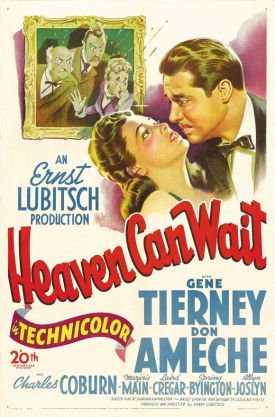The Naked and the Famous
From The New CriterionMark Roberts says he’s “hanging up my birthday suit at last,” according to The Mail on Sunday. The professional “streaker” who claims to have perpetrated 519 streaks during his career, including highly publicized ones at the British Open golf tournament, Wimbledon and the Super Bowl in 2004, says he’s giving up his main occupation of the last 20 years — he is otherwise unemployed, but has made some money as an underwear model and by publishing an autobiography — because his son’s friends were laughing at him. “What’s the problem, then?” asked dad, who says he got into streaking in the first place in order to make people laugh.
“Well, you’re my dad,’ replied Mark Junior, aged 19.
“That really hit home with me,” Mark Senior told the Mail.
The sentiment does him credit, of course, but it’s still a little bit difficult to imagine that it took him 20 years and 519 public displays of his manhood before he realized that his chosen career might be a cause of embarrassment to his nearest and dearest — or that being a “dad” one’s son can be proud of pretty much invariably involves keeping one’s clothes on in public. Another reason why Mr Roberts may have decided to give it up, however, is that exhibitionism has lately gone mainstream, leaving little room for free-lancers and quirky outsiders like himself. One of the most talked about moments of this year’s Super Bowl, played only a week before Mr Roberts’s announcement of his retirement, was a Calvin Klein underwear advertisement that bordered on the pornographic.
Quasi-pornography during the half-time show by Miss Beyoncé Knowles was naturally less surprising. Highly sexualized images of a young woman, or even an old woman in the case of Madonna’s half-time show last year, have become routine in that slot at least since Janet Jackson’s now legendary “wardrobe malfunction” in 2004 — coincidentally the same year that Mr Roberts and his wedding tackle made their appearance at the annual extravaganza. But this year’s underwear model was a man, a Mr Matthew Terry. Can there really that many gay football fans? It’s true that there was much twittering about the commercial by women who claimed to be drooling with lust over Mr Terry’s physique, but I wonder to what extent these women were only expressing a politically correct sort of concupiscence, designed to show that they could be as grossly inappropriate in publicizing such desires as they may have had as men so often are. Or is that an offensive thing for me to say? These days it’s so hard to tell.
How a woman reacts to a sexually self-aware man may also be age-related. As Jenny McCartney wrote in The Sunday Telegraph a week later about another underwear ad, this one featuring the soccer player David Beckham:
He is, of course, in great shape for a man of 37, or indeed any age: it is just that he looks too much as if he knows it. To find this a drawback clearly marks me out as someone who is getting on a bit. How one views overt masculine posing is a generational marker that divides those of us who came of age before the internet from the spawn of Facebook: the web has decontaminated narcissism. Advertisers, should you wish to appeal to women born before 1975, just show us a picture of a good-looking man who doesn’t look as if he is on first-name terms with the ladies at the local waxing parlour, and seems broadly unaware of his own appeal.
I don’t know if this is true, but it makes for a persuasive theory. Still, the case of Mr Roberts suggests that the public’s interest in such displays may not be primarily sexual but more a case of feeling privileged to see what, in spite of Mr Roberts’s best efforts, is still normally unseen. It was appropriate, too, for the latter to share his epiphany with the Mail, a popular newspaper in Britain which has done so much to perfect the journalistic formula for reporting on celebrity gossip. This is to justify the paper’s full attention to such flummery by retaining on its news pages just enough of the robust conservatism of its editorial pages to lend to the routine doings of an eclectic bunch of celebs the hint of scandal.
Thus, for example, the paper’s photos the same day of the glamorous star of Zero Dark Thirty, Jessica Chastain, are explained by the news that she is “‘dating’ a hunky Italian” — the word “dating” appearing in quotation marks because, well, we know what that means. Similarly, the capsule summary of a story about how Mr Michael Lohan “has signed up to write a tell-all self-help memoir” in order to get in ahead of memoirs planned by his daughter Lindsay and his ex-wife Dina reads: “Will they ever shut up?” Not so long as not shutting up gets them so much publicity from the Mail and other papers, I think. Another story brings us the news of the déshabillé, ostensibly accidental, of the young starlet Miley Cyrus when she was photographed at what is described as a pre-Grammy party. “Displaying a hint of sideboob throughout the evening,” the paper reported, “the actress nearly came a cropper when the risqué dress gaped open to reveal a clear nipple cover.” You can follow the link if you want to see that and other photos for yourself.
The association of Miss Cyrus’s nipple cover — which in the photograph is pretty hard to distinguish from a nipple — with the Gramophone Awards was perhaps meant to remind readers of the “Wardrobe Advisory” issued by the producers of this year’s ceremony:
CBS Program Practices advises that all talent appearing on camera please adhere to Network policy concerning wardrobe. Please be sure that buttocks and female breasts are adequately covered. Thong type costumes are problematic. Please avoid exposing bare fleshy under curves of the buttocks and buttock crack. Bare sides or under curvature of the breasts is also problematic. Please avoid sheer see- through clothing that could possibly expose female breast nipples. Please be sure the genital region is adequately covered so that there is no visible “puffy” bare skin exposure.
Of course it is the job of CBS, like the Mail and other respectable news outlets, to keep the ancient proprieties alive — at least so far as to allow them to be outraged. Unsurprisingly, not everyone at the ceremony itself was equally attentive to this directive, however, and the Mail was reliably on hand to identify the guilty parties. “Didn’t you get the memo?” the paper headlined the next day.”Singers D’Manti, Kelly Rowland and Alicia Keys defy sexy clothing ban in barely- there dresses at Grammy Awards.”
In the news story below there were hints of an awareness that there might have been a reason why it was these mainly less-celebrated celebrities who chose to raise their profile by defying the ban, but of course it wouldn’t do to say so outright. That would be to come a bit too near to acknowledging the media’s own symbiotic relationship with the publicity industry and themselves defy the propriety or polite fiction that they are just reporting the news. There was no mention of any male self-exposure on this occasion, but the most egregious example of self-exposure — that of Katy Perry’s breasts — came with a priceless photograph of the famously gay pop star Elton John getting an eyeful of her magnificent cleavage as he danced with her. “Even Elton can’t stop staring!” the Mail headlined. “Katy Perry causes a sensation as she flaunts her breasts in plunging dress at the Grammys.”
The pleasure of seeing what used to be called decency or decorum violated is essentially an adolescent one, but also part of the legacy of the “youth culture” of 1960s, which is increasingly the only popular culture we have. In my other role as a film critic, I have to see an awful lot of rubbish, as you can imagine. Most adults don’t go to movies these days but, if they watch them at all, wait until they come out on DVD or instant download and see them at home. As a result, the first-run movie audience skews to the early teens and a vicious circle is set up: the more the paying movie audience is made up of kids, the more Hollywood makes movies for childish tastes; the more Hollywood makes movies for childish tastes, the more the paying movie audience is made up of kids. At the same time, childhood is being prolonged into the twenties and even thirties, partly as a result of the education racket, so that the wider culture is more and more influenced by the childish tastes that were first identified with the popular culture half a century ago and have remained an indelible feature of it ever since.
Thus, on the discardable flap of my latest Netflix mailing, I notice an advertisement for a new DVD of a movie I didn’t quite get around to seeing called The Watch. The come-on consists of a mock police-tape warning reading: “Caution: Ruder, Cruder & Lewder.” Wow! Sign me up! It occurs to me that discussions of vulgarity in the popular culture by high-minded types such as myself are likely to neglect the simple fact that “ruder, cruder & lewder” is not usually a negligent by-product of the author’s higher artistic purposes but what he was going for in the first place. Vulgarity is his artistic purpose. It is not what he is sunk in but what he aspires to. Not coincidentally, he’s also catering for an audience which demands vulgarity. The interesting question is why does it do so? What’s the attraction?
I suppose it must have something to do with authenticity, which has learned to differentiate itself in artistic representation from inauthenticity primarily by a pose of defiance to the older social norms — in other words, manners — that it often seems we keep alive only so that they should be defied. Not far beneath the question of manners is the question of social class. The study of etiquette has historically been associated with the aspiration to rise into a higher class than that into which one has been born. Now that that aspiration has itself been discredited by the dominant culture, it has taken manners and respectability along with it into disreputability. Now people can only aspire to the manners of the vulgus, while they only advertise their lack of social nous by clinging to outmoded standards of decency and politeness.
To take an example from a movie that might seem to have been made for adults, at a key meeting in Zero Dark Thirty about the discovery of Osama bin Laden’s hiding place in Abbottabad, Pakistan, Miss Chastain — she whom the Mail informs us is “dating” that hunky Italian — answers the question of the CIA director played by James Gandolfini as to who she is by announcing: “I’m the motherf***** that found this place, sir.” Leaving aside the question of the physical possibility, let alone plausibility, of her character’s being the sexual actor she claims to be, we may wonder at the extent to which, now half a century on from when, as Philip Larkin poetically put it, “sexual intercourse began” (“Between the end of the Chatterly ban/And the Beatles’ first LP”) and nearly as long since anyone can have been genuinely shocked to hear a woman use what we still coyly refer to as “the f-word,” the proclamation of one’s — shall we say? — association with theoretically transgressive sexuality is still a token of the authentic.
The converse is also the case, as I pointed out last autumn (see “The Dignity of Scandal” in The New Criterion of September, 2012) a propos of John McWhorter’s damning Mitt Romney as inauthentic for using such antiquated euphemisms as golly and gosh in place of more vulgar expletives. You would think that a linguist would be particularly alert to the irony of the fact that golly and gosh, being rarer, are now more shocking to him than those quondam obscenities that today have become, willy-nilly, so much a part of everybody’s daily life. But the inversion of cultural norms is now as familiar to us as the naughty words themselves, so that it’s not surprising if we hardly notice either anymore.
Jessica Chastain’s claim to be a “motherf*****,” in other words, is just pro forma, a way of identifying herself by her manners, even at the heart of the official culture as a CIA agent, as standing among the theoretical rebels against that culture and therefore partaking of their greater authenticity — in the view of officialdom itself as much as anybody else. Being patronized as a woman in a traditionally male occupation gives her the opportunity to claim a superior status as a victim and an outsider to the “system” while still functioning within it and, indeed, doing so more successfully than any of the men. That may be why the film’s director, Kathryn Bigelow, felt that she had to include the scenes of torture — during which Miss Chastain’s character is a mostly impassive observer rather than a participant — that have occasioned so much criticism of her and it in the media.
Her heroine has to be not just a motherf*****, that is, but a bad motherf*****, lest anyone should suppose her to be so culturally behind the times as to cling to a vestige of that modesty and delicacy which in olden days were thought by the unenlightened to be characteristic of womankind. It is the male torturer (played by Jason Clarke), not she, who says he has to give up the job because he has seen too many naked men. Clearly, Mark Roberts can no longer expect to get a frisson of aggressive male pride (if that is what he used to get) out of eliciting a reaction from the likes of her.
Yet when the Navy Seals in the movie take off for action on the Northwest Frontier, there is never any question of her joining them — perhaps not only out of deference to historical fact but also as an acknowledgment, like her standing aloof but watchful during the torture scenes, that even in our era of rebellion against traditional norms there remain some boundaries, some limits to the feminist imperative to abolish all customary and legal distinctions between the sexes. If so, it constitutes a rare case in which Hollywood’s cultural advance lags behind that of the Joint Chiefs of Staff of the Defense Department, who in January proclaimed it as their intention to admit women to combat units of the armed forces for the first time.
No one can have supposed this development genuinely to have been, as it was officially supposed to be, a voluntary move on the Chiefs’ part — any more than anyone, even its most impassioned advocates, can have supposed it to be an enhancement of our country’s military capabilities. General Dempsey, the Chairman of the Joint Chiefs, frankly admitted under questioning that standards of fitness would have to be lowered to accommodate our new breed of woman warriors. But the same liberation from antiquated notions of decorum which has made media models and celebrities out of self-consciously vulgar, foul-mouthed and exhibitionist females can hardly be expected to pull up short of the killer kind.
Returning for a moment to Jenny McCarthy’s look to the Internet for something to blame for the decay of such notions, there certainly must be some responsibility there for what looks like the opposite: namely, a recrudescence of sexual judgementalism in the Internet phenomenon known as “slut-shaming.” Claire Cohen in The Daily Telegraph writes of how publicizing and passing around on the Internet photos of women who have too obviously been engaging in the sort of sexual acts that would once have been shameful is now a practice migrating from teenagers to adults and from men to women — just as if such acts still were shameful. She is frankly baffled.
I’m not trying to claim there’s a conspiracy of female in-fighting, here. But, simply, how can we expect men to respect women’s sexuality, when we’re so ready to devalue one other? It just adds fuel to the notion that female sexuality is something to be ashamed of; something to be pilloried and — most alarmingly of all — used as a weapon.
The implication is what an unsisterly and unfeminist thing it is to be cruel in exposing another woman’s sexual behavior. But people don’t seem to know what they want. Feminism first cleared away as politically incorrect manners and chivalry, which was the foundation of much of modern manners dealing with relations between the sexes and which first taught us about the special respect (or “honor”) due to female privacy. Now people like Claire Cohen have the nerve to complain in the name of feminism about people’s unmannerly behavior. Similarly, the same feminists who demand that women should be treated identically with men when it comes to serving in combat complain about the rise in sexual assault in the services. But if women are not to be afforded special protection in the one case, it’s got to be hard to explain why they should be afforded it in the other — especially to the tough motherf*****s whom we once prized among our military men but who are now told that they owe the title as a courtesy to women. Perhaps manners, like shame, are not so easily forgotten as we once imagined.
Discover more from James Bowman
Subscribe to get the latest posts to your email.







